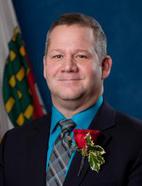On several occasions since I was elected, I have gone on record talking about morale in the public service. The staff of the G.N.W.T. are
our most valuable resource. They’re the people who provide the essential services to all the residents in the Northwest Territories. Without a happy and motivated public service, we fail in the delivery of these essential services we are expected to deliver as a government.
Now, with this Premier’s announcement of $135 million in reductions over two years, there are waves of terror running through the public service. The continued reference from the Premier to job cuts does nothing but radically reduce already poor morale. It seems to me that focusing on job cuts is exactly the wrong way to pursue a course correction with respect to the government’s spending patterns.
Yesterday in the House we heard many suggestions on ways to improve our financial situation without cutting staff — things like reviewing and improving our energy use and consumption within the government itself, eliminating long-term non-essential vacant positions in headquarters where government departments use salary dollars for other purposes, and increasing co-operation between departments in order to reduce duplicate spending.
Once every reasonable effort has been made to reduce our overall spending through streamlining as well as creative and innovative thinking and planning, we may still be faced with some job cuts. These job cuts should be a last resort; they shouldn’t be the government’s first solution to our financial difficulties.
In 1996 the government made the mistake of implementing short-sighted job cuts with an intent to reduce spending. It failed. It did not result in a fundamental change in how the public service does business, which is what is truly required. In the end, people of the N.W.T. left, which affected the amount of money we received from the federal government. All the structural changes, such as the elimination of personnel and the consolidation of Renewable Resources and Economic Development and Tourism, have reversed themselves at a greater cost to the G.N.W.T.
Let’s not re-live the same mistakes. Let’s get it right. To this end, I encourage the Premier and his cabinet to engage staff, the public, as well as the 11 Members on this side of the House to find creative solutions which improve our financial situation without cutting public service jobs. We must support our most valuable resource: our dedicated and committed staff. They deserve better than the message they are currently receiving.
Mr. Speaker, later today I’ll be asking the Premier questions regarding staff and finding ways to reduce spending without destroying morale. Thank you, Mr. Speaker.
